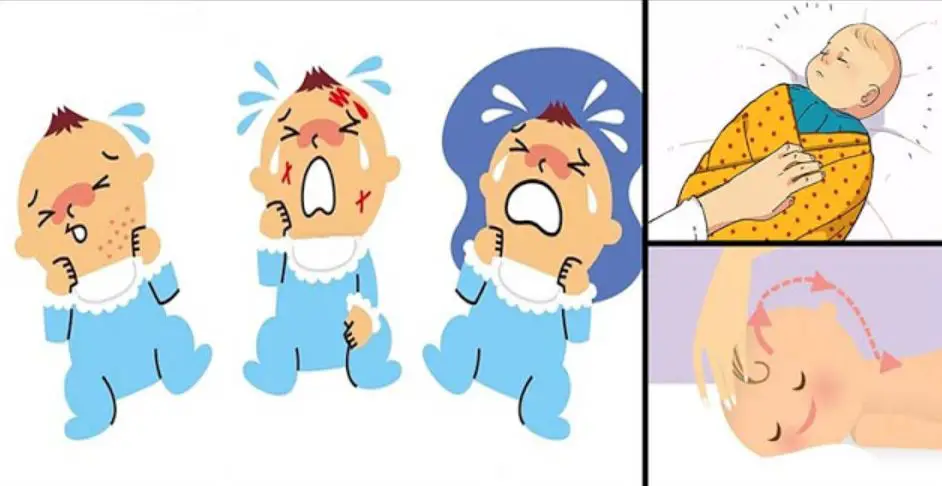What is Colic?
Infantile colic or as we all know it – baby colic is a stomach problem which causes babies to cry unexplainably 3 hours or more every day. They mostly appear 3 or more days during the week, over 3 weeks. Colic usually appears in the evening even though it can also appear in any part of the day in babies from 2 weeks up to 4 months old.
The Most Common Symptoms of Colic Are:
- The baby isn’t tired, hungry or with a dirty diaper. It seems to cry without any obvious reason.
- The baby cries at a precise time every day. It can be in the early evening or late afternoon, but there are exceptions.
- The eyes of the baby are often closed, then opened wide. The brows are furrowed and it holds the breath for a while.
- The baby moves the arms and legs more than the usual. The legs are usually pulled up and it has clenched fists all the time.
- It starts crying during sleeping or eating. The baby seeks a nipple, but rejects it as soon as it gets it. It can also be noticed dozing for a while and then starts screaming once again.
- The bowel activity in babies is then increased, so they may be seen spitting up or having gas.
There are also more severe cases than these. These are some of the most common symptoms:
- Fatigue
- Poor weight gain
- Unstable body temperature
- Frequent vomiting
In case you are suspicious because of the crying pattern of the baby or it may have a change in the behavior, visit a medical specialist. You should also look for help if the baby has a fever, bloody stools, stomach problems like diarrhea, etc.
You need to be careful with colic. It needs several weeks or months to disappear.
Here, we’re offering you some of the best tips and tricks to help your baby with colic!
Eliminate Any Trapped Gas
Use some light exercises to help the baby if there is gas in its stomach.
Put the baby across your lap. It should lie on its belly. Most of the baby’s weight should be on your knee.
Another thing you can try is to put the baby on the back and start pumping its legs. Create a bicycle motion or just pump the baby’s legs towards the abdomen. Remember, this should be done very gently.
Burping can also help and relieve the gas and pain. The baby should be held up against your shoulder. Rub the back of the baby or pat it using your hand.
A Pacifier Can Help
A pacifier is good because it helps babies with the instinctive sucking. They are comforted for a while. They are quiet and fall asleep easier. It can also help your baby in case it has colic.
Oil Massage
Performing oil massages regularly can help your baby acquire proper digestion, stay warm and sleep well after a meal.
Combine some lavender oil with olive oil. Apply the mixture on the baby’s tummy. Use clockwise circular movements to massage it. You can also perform a massage on the baby’s feet, hands, pelvis, and rib cage. Repeat this several times every day.
Be Careful About the Food You Eat
Breastfeeding is the best for any mother and baby. You just have to be sure that you’re eating properly. Consult your doctor if you should stop eating some foods for a while: cruciferous vegetables which cause gas (cauliflower, cabbage), citrus fruits which are acidic, foods which are allergenic (wheat, eggs, soy, dairy, fish, peanuts, etc.).
Play Soothing Music
A baby with colic can be calmed down with soothing music. Play some classical music CD or just sing a lullaby quietly. Some babies enjoy the whirl of a fan or some sounds from nature. Repeat “ahh” or “shh” all the time. Try to discover what your baby enjoys the most by trying different options.
Give It Probiotics
There are probiotics for infants that your podiatrist can prescribe you. They can offer the baby general relief, improve the digestion and the intestines, etc.
Swaddling
The baby will feel comfortable and snug with the help of swaddling. Put a blanket in the drier. Use it while it’s warm to wrap your baby with it. It will feel secure and warm and it will calm down a bit. The crying should stop.


